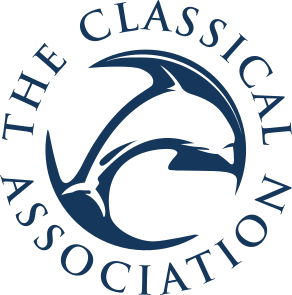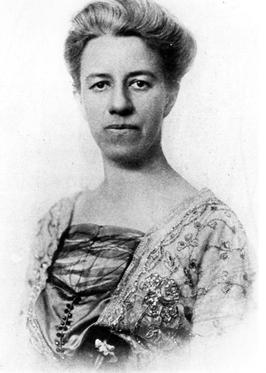History, Membership, Goals
The WCC is a not-for-profit group founded in 1972 and incorporated in 1992; membership is open to men as well as women. University professors and graduate students make up the majority of its members, but membership includes high school teachers, independent scholars, college students, and retired academics. According to its website, the group's goals are both scholarly and professional. It seeks to incorporate feminist perspectives in the study and teaching of ancient Mediterranean cultures, particularly the study of women in classical antiquity. It also strives to advance the goals of equality and diversity within the profession of Classics, to foster supportive professional relationships among classicists concerned with questions of gender, and to forge links with feminist scholars in other disciplines. The WCC also publishes Cloelia, an annual newsletter.
Its Steering Committee meets each year at the APA Annual Meeting, when the group also hosts get-togethers for graduate students and a Business Meeting open to all members.

The Modern Language Association of America, often referred to as the Modern Language Association (MLA), is widely considered the principal professional association in the United States for scholars of language and literature. The MLA aims to "strengthen the study and teaching of language and literature". The organization includes over 25,000 members in 100 countries, primarily academic scholars, professors, and graduate students who study or teach language and literature, including English, other modern languages, and comparative literature. Although founded in the United States, with offices in New York City, the MLA's membership, concerns, reputation, and influence are international in scope.
The Society for Classical Studies (SCS), formerly known as the American Philological Association (APA), is a non-profit North American scholarly organization devoted to all aspects of Greek and Roman civilization founded in 1869. It is the preeminent association in the field and publishes a journal, Transactions of the American Philological Association (TAPA). The APA is currently based at New York University.

Founded in 1919, the American Classical League (ACL) is a professional organization which promotes the study of classical civilization at all levels of education in the United States and Canada. Teachers of Latin, Ancient Greek and the Classics account for the majority of its membership, though the ACL is open to any person interested in preserving the language, literature and culture of both Ancient Rome and Ancient Greece. Currently based in Hamilton, Ohio, the league publishes and provides hundreds of teaching aids; runs a national placement service for teachers of Latin and Greek; sponsors the National Latin Examination (NLE); functions as the parent organization of both the National Junior Classical League (NJCL) and National Senior Classical League (NSCL); and annually holds a convention — the Annual Institute — to promote excellence in the teaching of classical studies. The ACL also encourages and supports ongoing dialogue with other classical and modern language associations.

The Classical Association (CA) is an educational organisation which aims to promote and widen access to the study of classical subjects in the United Kingdom. Founded in 1903, the CA supports and advances classical learning in schools, colleges, universities and local areas, and it has a wide membership. The CA is a member of the Council for Subject Associations and is a registered charity.
The Classical Association of the Middle West and South (CAMWS) is a professional organization for classicists and non-classicists at all levels of instruction which promotes the Classics through the broad scope of its annual meeting, through its publication of both original research and pedagogical contributions in The Classical Journal and Teaching Classical Languages and through its awards, scholarships, and outreach initiatives.

The Association for Women in Psychology (AWP) is a not-for-profit scientific and educational organization committed to encouraging feminist psychological research, theory, and activism.
The Classical Association of New England (CANE) is a professional organization for scholars and teachers of classical antiquity in New England. CANE was founded in 1906, by a group of "concerned collegiate Hellenists" led by George Edwin Howes of Williams College. Howes became the first Secretary-Treasurer of CANE and served in that capacity until 1920. Charles D. Adams of Dartmouth College was the first president.
The Caucus for a New Political Science (CNPS) was first founded in 1967 as a caucus, and then a formal section, within the American Political Science Association (APSA). APSA is the official professional organization of political scientists in the United States, with over 15,000 members worldwide. CNPS’ membership rolls at present indicate between 425 and 475 members. The CNPS emerged to challenge the principle of neutrality contained in the APSA by-laws and to encourage political activism among those in the profession. Critics and supporters have characterized the mission of the CNPS as explicitly political and left in its orientation. Critics have charged that CNPS was responsible for negatively affecting the APSA in 1968 and 1969 with the challenge to association's commitment to political neutrality on public issues of the day. It is generally observed that CNPS was the first section of its kind within APSA and opened the door for the formal recognition by APSA of a variety of sections dedicated to more explicitly engaged scholarship. Among those groups and caucuses that subsequently sought and gained formal section recognition within APSA are: Women & Politics; Race & Ethnicity; Sexuality and Politics as well as affiliated groups such as the Lesbian, Gay, Bi-Sexual, and Transgender group and The Labor Project.

Grace Harriet Macurdy was an American classicist, and the first American woman to gain a PhD from Columbia University. She taught at Vassar College for 44 years, despite a lengthy conflict with Abby Leach, her first employer.

The Society for the Teaching of Psychology (STP) is Division 2 of the American Psychological Association. It is an academic society that promotes effective pedagogy while providing supports for teachers of psychology at all levels. Although it is one of the divisions of the American Psychological Association, it does not require its members to join the APA. The STP provides access to peer-reviewed teaching resources, such as course syllabi and e-books, free of charge to the general public through its website. Some sections of the website require STP membership to gain access.
Judith P. Hallett is Professor and Distinguished Scholar-Teacher Emerita of Classics, having formerly been the Graduate Director at the Department of Classics, University of Maryland. Her research focuses on women, the family, and sexuality in ancient Greece and Rome, particularly in Latin literature. She is also an expert on classical education and reception in the nineteenth and twentieth centuries.
Amy Ellen Richlin is a professor in the Department of Classics at the University of California Los Angeles (UCLA). Her specialist areas include Latin literature, the history of sexuality, and feminist theory.

Nancy Sorkin Rabinowitz is a classical scholar, specialising in ancient Greek literature and intersectional feminism.

Elizabeth Hazelton "Hazel" Haight was an American classical scholar and academic who specialised in Latin teaching. She spent most of her career working for Vassar College in Poughkeepsie, New York. Haight was the second female president of the American Philological Association, and first woman to chair the Advisory Council of the American School of Classical Studies at Rome. She published eleven books in the field of Classics, as well as histories of Vassar and James Monroe Taylor. Her works focused on Latin Literature and the Greek novel, before she began the study of symbolism in Latin literature in her final publications. She was involved in Vassar's war efforts during World War I, and supporting foreign scholars during World War II, and was consistently interested in promoting women's education as a force for good in American society.

The Women's Classical Committee UK (WCC) is a group of academics, students, and teachers who aim to support women in Classics, promote feminist and gender-informed perspectives in Classics, raise the profile of the study of women in antiquity and Classical reception, and advance equality and diversity in Classics.

Shelley P. Haley is the Edward North Chair of Classics and Professor of Africana Studies at Hamilton College, New York, and President of the Society for Classical Studies. She is an expert in applying Black feminist and critical race approaches to the study and teaching of Classics.
The Classical Association of Canada (CAC) is a national, nonprofit organization with the aim of advancing the study of the civilizations of the Greek and Roman worlds in their Mediterranean context, including philology, Classical archaeology, papyrology, epigraphy, and numismatics. The CAC encourages public awareness of the contribution and importance of Classics to both education and public life. Its official languages are English and French.
The Association for Feminist Anthropology (AFA), a section of the American Anthropological Association, is an American professional organization founded in 1988 to support the development of feminist analytic perspective in all areas of anthropology.
Rosa Andújar, FHEA, is a Dominican-American classicist and senior lecturer at King's College London. She is an expert in ancient Greek tragedy, especially the tragic chorus, and Hellenic classicisms in Latin America.
Deborah Kamen is Chair and Professor of Classics at the University of Washington. Her research is on Greek cultural and social history, with a particular focus on ancient slavery.









